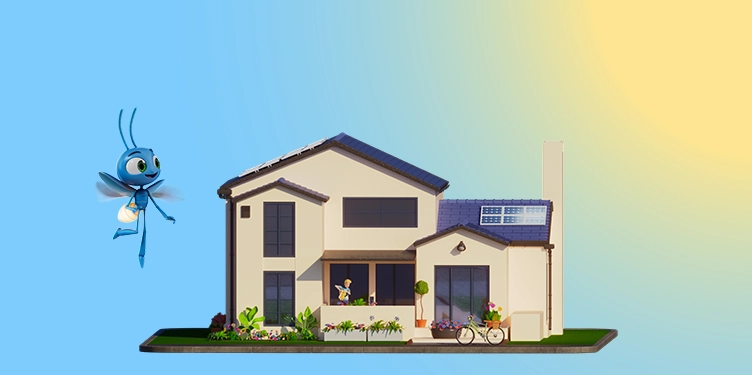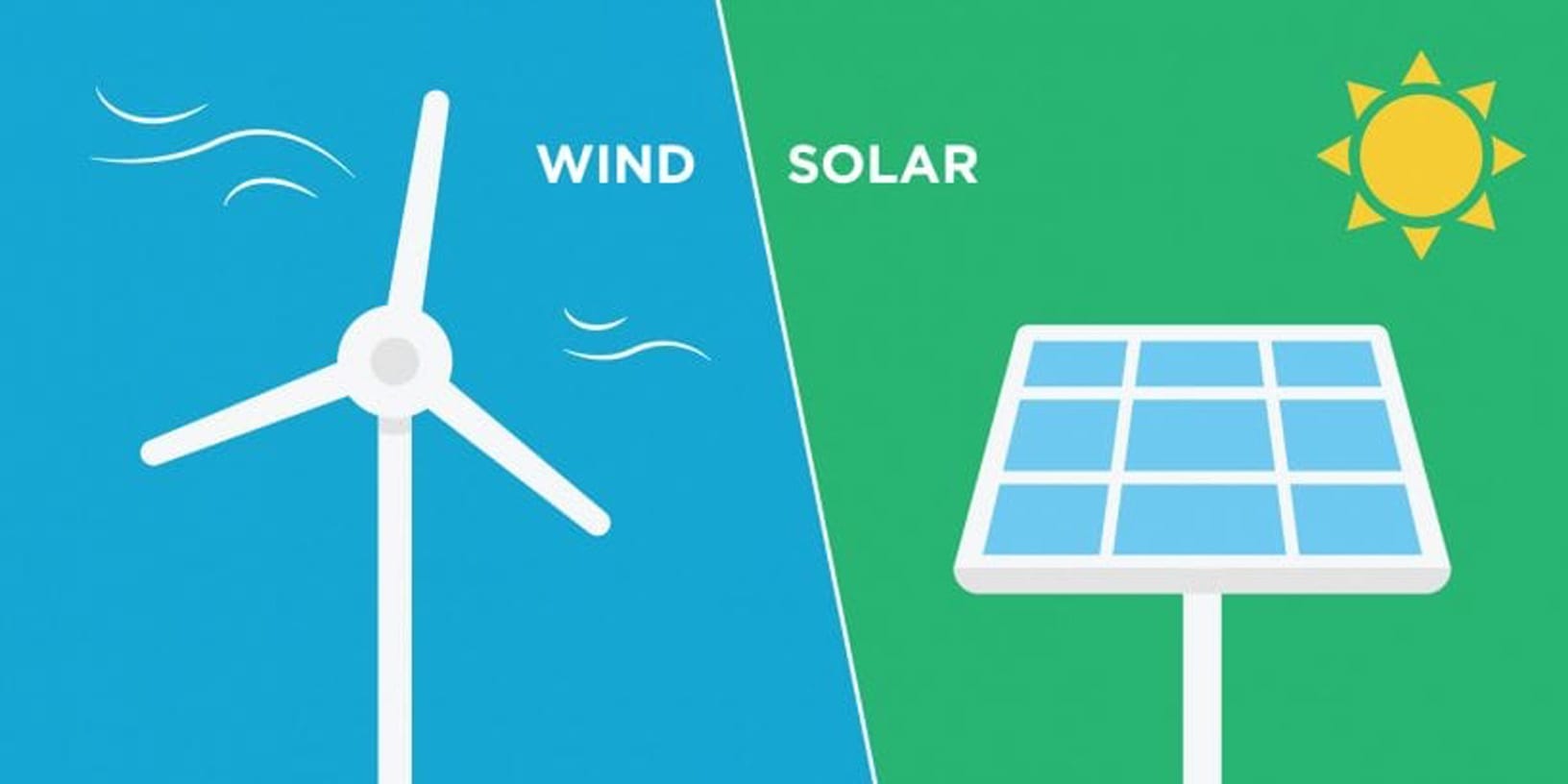Green Mountain Energy® Blog
What to Know When Buying a Home with Solar Panels



As the housing market continues to prioritize sustainability, more homes today feature rooftop solar panels.
Learn how to evaluate solar-powered homes, including ownership models, solar panel warranties, system performance, energy savings and more.
Owning versus leasing a home solar system
One of the first things to consider in a home with existing solar panels is who owns the system.
There are typically two models:
- Owned systems: If the homeowner paid for the system up front or financed it with a loan that has been paid off (or will be paid off at closing), then the solar panels are considered part of the property. This is the most straightforward scenario for buyers. You own the system outright, get all the energy savings it delivers, and there are no ongoing payments to a third party.
- Leased systems / power purchase agreements: Sometimes a home has a solar system installed that is owned by a third party. This arrangement is called a power purchase agreement (PPA). PPAs benefit the homeowner by supplying solar electricity at a contracted rate without the cost of paying for the system.
With any home on a PPA, it's advisable to review contract terms as part of your decision about the house. These agreements often last 15–25 years and may require you to assume the lease or enter into a new agreement with the provider.
Implications of PPAs for homebuyers- You may need to qualify with the solar company to assume the lease.
- Monthly payments could impact your debt-to-income ratio.
- Future buyers may be wary of assuming a solar lease, affecting resale.
- You may need to qualify with the solar company to assume the lease.
Know the system age and warranty status
Just like any other major home feature, whether it’s the air conditioning or the roof, solar panels have a lifespan and warranty. Getting a handle on these specifics is important for evaluating a home.
- Age of the system: Solar panels generally last 25 to 30 years. If the system is already 15–20 years old, you may only have a decade or so of optimal performance left. Older systems might be less efficient than newer models.
- Warranty coverage: Most solar panels come with:
- A performance warranty, guaranteeing a certain level of energy production over time.
- An equipment warranty, covering manufacturing defects and component failures.
- An installation warranty from the installer, covering labor and mounting issues.
Obtaining documentation on the warranties, and determining if they are transferable to new owners, is important information when considering a home with a solar system.
For more in-depth researchers, a review of the installer’s reputation online could also provide perspective on the value of the system going forward.
Review the system's performance and energy output
Ask the seller (or their agent) for performance reports or monitoring data. These records can provide numbers-based insight into how much electricity the system produces.
Key areas to investigate
- Expected versus actual output: Compare the system’s projected performance to actual output. A significant difference might suggest shading issues, maintenance problems or even an issue of system design that could be corrected.
- Shading and orientation: Trees, nearby buildings or roof angles can affect home solar system performance. Even small amounts of shading can dramatically reduce output.
- Maintenance history: Inquiring whether the system has required repairs or cleaning and how frequently can provide a good expectation going forward. A low-maintenance system just needs occasional upkeep to ensure peak performance.
If the seller doesn’t have this data, you can request an independent solar inspection as part of your due diligence.
Evaluate financial benefits and ongoing cost
The financial side of solar is often a major draw, but it’s important to size up the system’s costs alongside it.
Potential benefits of home solar panels
- Energy savings
If possible, review past electricity bills for an idea of how much the solar system affects utility costs. This will provide you a baseline expectation for savings.
- Tax incentives
There may be performance-based tax rebates, where solar-powered homes that produce a certain amount of energy over time get the benefit. These can vary state by state, and should be verified.
- Net metering
In many states, net metering allows homeowners to sell excess solar energy back to the grid, receiving credits that offset future electricity use. Policies vary by location and utility provider, including different levels of bill credits. All of these factors can affect long-term savings.
Checklist:
Whether net metering is in place.
What rate the utility pays for excess power.
Whether that policy is likely to change soon.
Potential costs of solar panels
If the system is leased or financed:
- Learn about monthly payments.
- Understand annual escalator clauses (some leases increase yearly).
- Consider maintenance responsibilities; some leases include full-service maintenance, while others do not.
Even with an owned system, certain parts may require replacement. Out-of-pocket panel cleaning expenses may also be a necessity.
Consider long term value and resale potential
One common question regarding solar panels is whether they increase home value. In many cases, the answer is "yes," but with some caveats.
Home value
Studies of sales trends in real estate, including one from Zillow*, suggest that homes with owned solar panels can sell for more than comparable homes without panels. Buyers increasingly value energy efficiency and lower utility bills.
Leased systems do not offer the same value as owned systems. With a lease buyout, you can choose to pay off the remainder of your solar lease and the buyer has the option to start a new lease under their name.
Environmental and lifestyle benefits
For many buyers, sustainability is important. A solar-powered home appeals to eco-conscious individuals and aligns with broader goals like reducing reliance on fossil fuels.
Market appeal
Solar adoption is growing rapidly. Homes in states with plentiful sunlight — Texas and California, to cite two examples — have a strong incentive to keep installing home solar. Home buyers in these settings may even expect solar panels when they tour houses on the market.
Important factors for appealing to buyers:
- The system is in good working condition.
- Contracts are clearly disclosed.
- You can articulate the value of the system to future buyers, especially in a documented, measurable way.
Key takeaways before you buy
Buying a home with solar panels can be a smart investment, but it’s crucial to do your homework. Here’s a quick summary of what to consider:
Ownership matters: Owned systems are usually more attractive and financially beneficial than leased ones.
Check age and warranty: Know how old the system is and whether solar panel warranties will transfer to you.
Review performance: Ask for energy production reports and inspect for shading or damage.
Evaluate finances: Consider energy savings, net metering credits, and any lease or maintenance costs.
Look at long-term value: An owned, efficient system can boost your home’s value and appeal.
By taking a comprehensive look at the solar system — just like you would with the roof or plumbing — you can feel more confident in both the home and your energy future.
Find a renewable energy plan that helps your home go green.
Enter your ZIP code to get started.





